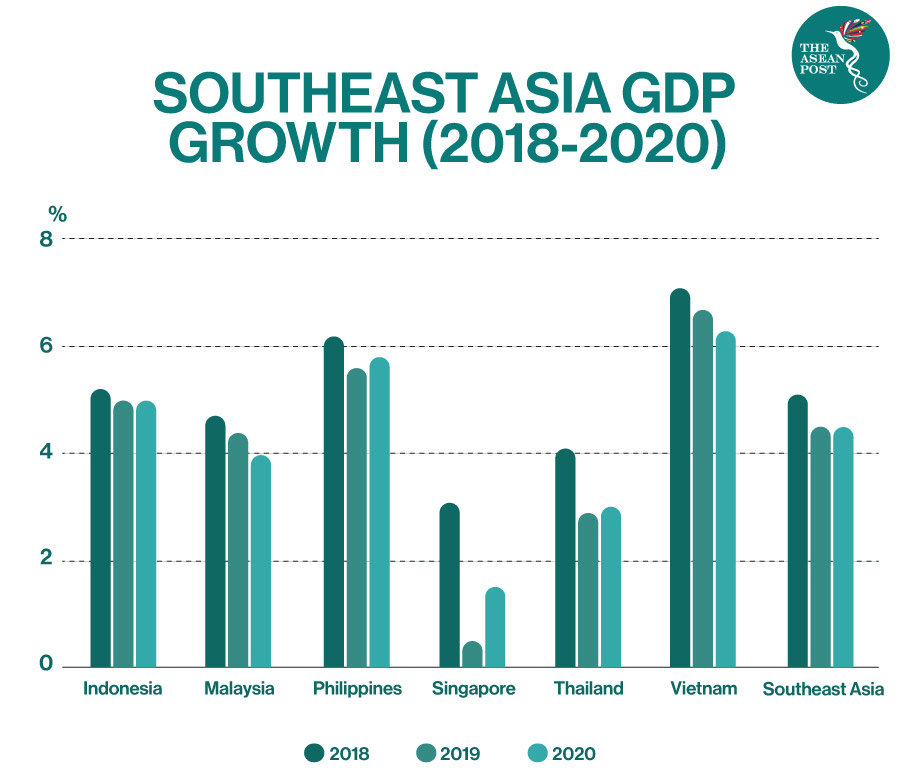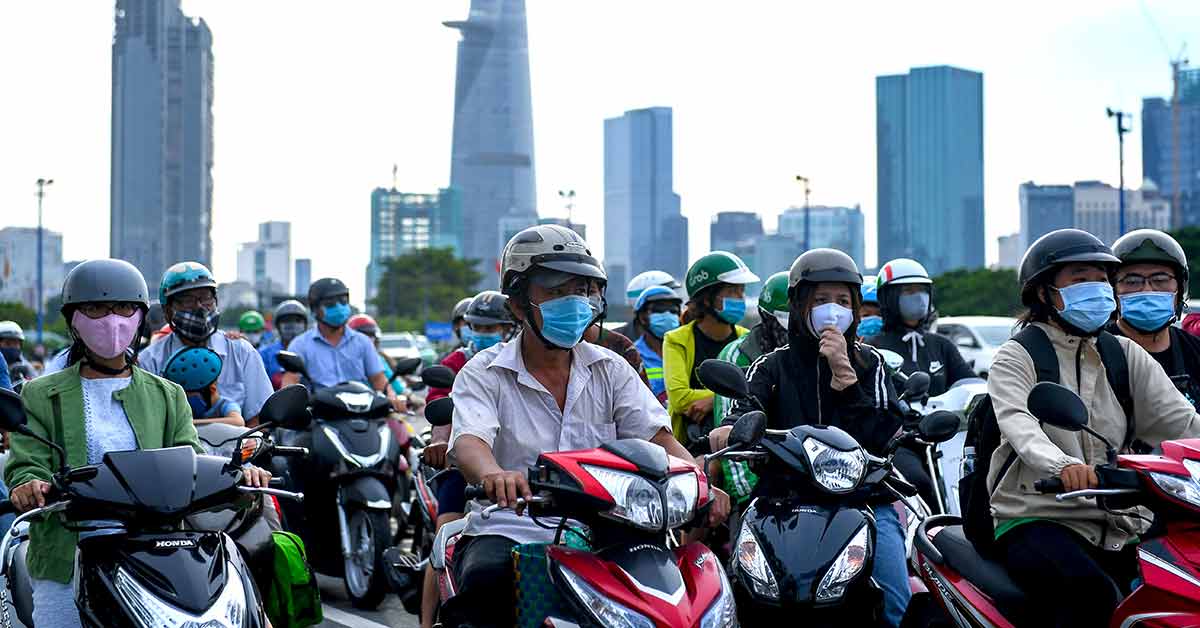Vietnam, as the current Chair of the Association of Southeast Asian Nations (ASEAN) for 2020, has been actively involved with the association since 1995 when it joined the bloc with the aim of bringing all Southeast Asian countries together to promote regional peace, freedom, and prosperity.
Vietnam has been making great strides in projecting itself as an effective leader, particularly with its proactive governance in handling the COVID-19 pandemic, climate change policy, and for its political stability. There has been recent speculation regarding Vietnam taking-up the role as new de facto leader of ASEAN.
Indonesia has long been considered the de facto leader of ASEAN based on historical assumptions as well as the fact that it is one of ASEAN’s founding members. However, the current mishandling of the COVID-19 pandemic and Indonesia’s political instability as a result of the introduction of the unpopular Omnibus Law on Job Creation has exposed the populous ASEAN member state’s weaknesses and unsuitability as a regional leader.
Climate Change Policy
Vietnam has achieved the United Nations’ (UN) climate action goal, while Indonesia, Thailand, Malaysia, and Singapore have fallen behind, as most European nations have. The UN's Sustainable Development Goal (SDG) 13 is climate action. Countries have to reach five targets, including measures for reducing carbon emissions and investment in climate resilience.
According to the Sustainable Development Report 2020, Vietnam is the only Southeast Asian country that has achieved climate action. Vietnam is powering ahead of the rest of Southeast Asia as it pushes for greater reliance on renewable energy.
The McKinsey Insights 2019 report titled, “Exploring an alternative pathway for Vietnam’s energy future”, states that Vietnam has tremendous natural endowments with four to five kilowatt-hours (kWh) per square metre for solar and 3,000 kilometres of coastline with consistent winds in the range of 5.5 to 7.3 metres per second (m/s) for advantaged solar and wind generation.

Economic Growth
Even during these unusually rough times, the Vietnamese economy has been remarkably resilient. Vietnam is nonetheless in a good position to escape the COVID-19 economic trap for three reasons.
Firstly, the government has introduced tax breaks, the delaying of tax payments, and land-use fees for businesses.
Secondly, the investment law in Vietnam has been revised several times, mainly adopting a more profitable approach for investors by reducing administrative bureaucracy and facilitating foreign direct investment (FDI) to Vietnam.
As the result, FDI worth over US$12 billion was registered between January and April, 2020. Due to investment inflow, which is still on an unprecedented rise, Vietnam is potentially becoming the fastest-growing digital economy in Southeast Asia. Over the last four years, approximately US$1 billion in funding has poured into Vietnam's e-commerce sector.
Thirdly, Vietnam has also ratified a landmark trade deal with the European Union (EU) on 29 June, 2020. Beginning July 2020; the EU has lifted 85 percent of its tariffs on Vietnamese goods, gradually cutting the rest over the next seven years.
In return, Vietnam will lift 49 percent of its import duties on EU exports and phase out the rest over 10 years. In addition, Vietnam recorded a trade surplus of more than US$9.9 billion, the highest compared to the previous four years. As a result, Vietnam economy is expected to grow positively in 2020.
Vietnam’s economy in Q3 has been positive, registering a 2.6 percent growth driven by the agriculture, forestry, and fisheries sectors, which grew 2.93 percent. The industry and construction sector grew 2.95 percent and services grew 2.75 percent. Overall Vietnam's growth in 2020 is expected to be in the range of 2.9 percent.
Politically Stable
Vietnam is one of the more politically stable countries in Southeast Asia. The one-party state is ruled by the Communist Party of Vietnam (CPV), which provides strategic direction and decides on all major policy issues while internal conflicts are strictly controlled.
This compares favourably to other ASEAN member states like Thailand for instance, that over the past few months, has seen yet another wave of student protests that are tied to wider domestic political struggles.
The fragility of the ruling government, the coronavirus outbreak, and the economic slowdown has formed a “triple-whammy crisis” for Malaysia while Singapore is still grappling with its migrant dormitories COVID-19 infections and the political aftermath of its recent general election.
The Philippines’ failings on both, health and economy, and Indonesia’s possible political instability as a result of its COVID-19 pandemic and ill-timed passing of the Jobs Bill into law which has met mounting resistance from labour unions and environmentalists.
All these developments could thrust Vietnam into the driver’s seat for ASEAN.
Conclusion
As Southeast Asia’s rising star, Vietnam could assume an effective dual leadership strategy with traditional ASEAN de facto leader, Indonesia.
The success of Vietnam's COVID-19 strategy – which is centred on its experience with similar virus outbreaks in the past – has rightly attracted the attention of the international community. The ASEAN member state should be commended for its effective pandemic policies, which has resulted in low levels of transmission and fatalities.
On the other hand, Indonesia’s attempts in protecting its economy and stemming the rising number of fatalities and infections have been sadly inadequate. This has been exacerbated by the relatively small state budget allocation for funding stimulus programs and healthcare initiatives.
Vietnam could benefit from Indonesia’s geopolitical-driven leadership to ensure regional stability, since Indonesia is Southeast Asia’s most diverse country, only Group of Twenty (G20) member; and one of the Non-Alignment Movement's (NAM) founding nations.
On the other, Indonesia could learn from Vietnam’s enduring proactive policies in resisting the COVID-19 pandemic; tackling climate change issues, and growing a digital economy.
Together, both states can alter the security environment of ASEAN and lead the association in the right direction in terms of all its member states’ individual and collective goals.
This dual-leadership could perhaps help ASEAN weather the approaching storms of a post-pandemic world and China’s growing hegemony in the region.
Related Articles:

